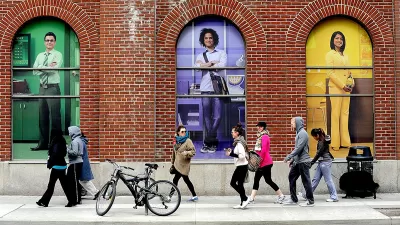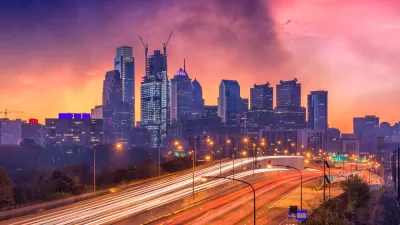Ninety percent of respondents to a recent survey overestimated the time it would take to walk or bike to work, and those with parking permits were the worst at guessing their commute times.

Pennsylvania State University conducted a study with 505 participants and asked them to estimate the time it would take them to walk or bike to work. 90 percent of respondents to a survey over-estimated how long it would take for them to walk or bike to work, according to an article by Gretchen Reynolds.
Drilling down into the data, the researchers found even more interesting insights. Those who did walk or bike were (not surprisingly) much more likely to guess accurately how long it would take them to walk, and those that had permitted work parking were most likely to overestimate the commute and to exaggerate that overestimation beyond their peers. Researchers suggest that if people knew how much time it actually took to get to work under their own power they might be more likely to opt to walk.
FULL STORY: Think Biking or Walking to Work Would Take Too Long? Think Again

Maui's Vacation Rental Debate Turns Ugly
Verbal attacks, misinformation campaigns and fistfights plague a high-stakes debate to convert thousands of vacation rentals into long-term housing.

Planetizen Federal Action Tracker
A weekly monitor of how Trump’s orders and actions are impacting planners and planning in America.

San Francisco Suspends Traffic Calming Amidst Record Deaths
Citing “a challenging fiscal landscape,” the city will cease the program on the heels of 42 traffic deaths, including 24 pedestrians.

Defunct Pittsburgh Power Plant to Become Residential Tower
A decommissioned steam heat plant will be redeveloped into almost 100 affordable housing units.

Trump Prompts Restructuring of Transportation Research Board in “Unprecedented Overreach”
The TRB has eliminated more than half of its committees including those focused on climate, equity, and cities.

Amtrak Rolls Out New Orleans to Alabama “Mardi Gras” Train
The new service will operate morning and evening departures between Mobile and New Orleans.
Urban Design for Planners 1: Software Tools
This six-course series explores essential urban design concepts using open source software and equips planners with the tools they need to participate fully in the urban design process.
Planning for Universal Design
Learn the tools for implementing Universal Design in planning regulations.
Heyer Gruel & Associates PA
JM Goldson LLC
Custer County Colorado
City of Camden Redevelopment Agency
City of Astoria
Transportation Research & Education Center (TREC) at Portland State University
Jefferson Parish Government
Camden Redevelopment Agency
City of Claremont




























